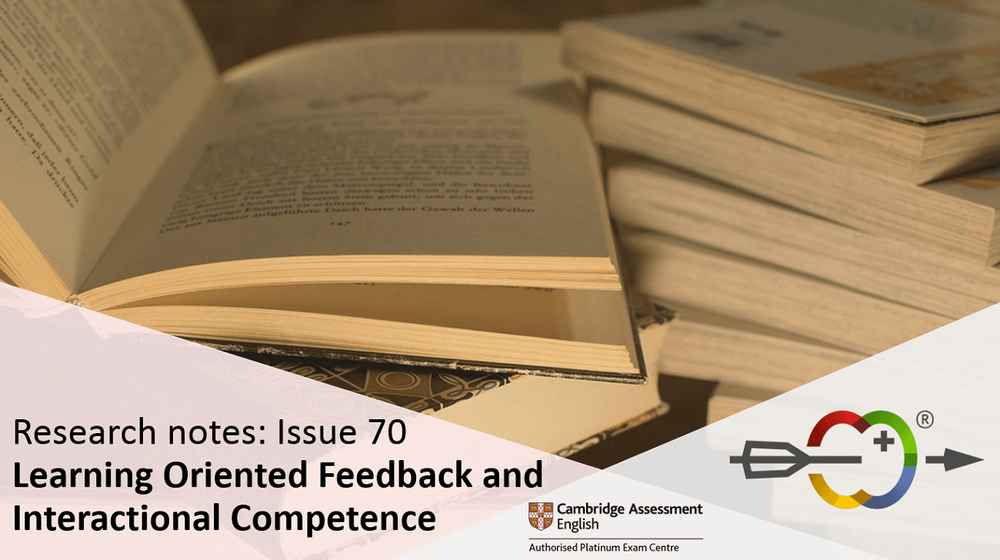This issue contains a report from the Cambridge English Funded Research Programme. This programme provides funding and other support for researchers at universities and other institutions to carry out projects related to Cambridge English tests and services. The purpose is to enable independent research on our tests and support the global language testing community. Earlier reports from the Funded Research Programme have appeared in Research Notes issues 47, 52, 54, and 57, and information about it can be found at www.cambridgeenglish.org/research-andvalidation/research-and-collaboration/#funded-research. The lead researcher for this project was Fumiyo Nakatsuhara of the University of Bedfordshire. The project was about interactional competence in learners who are preparing to take B2 First (formerly known as Cambridge English: First) or are at a similar level. Interactional competence is an aspect of conversational speaking ability that includes turn-taking, managing and developing a conversation, listening and responding appropriately, and helping the other person or persons as needed. These skills are sometimes neglected in the classroom in favour of the more obvious aspects of speaking proficiency such as vocabulary, pronunciation, and fluency. The purpose of the project was to create a detailed checklist to help teachers give feedback to learners on their interactional competence. The checklist can be seen in Appendix 5, and a concise version of the checklist, which should be more practical for use in the classroom, is provided in Appendix 6. As the researchers mention, the checklist could also be used by learners for self- or peer-assessment. This project makes a valuable contribution to describing interactional competence and goes some way to address the deficit in high-quality teaching and learning materials for these skills. We hope the checklist will be used widely.
Research notes: Issue 70 – Learning Oriented Feedback and Interactional Competence
Research notes: Issue 70 – Learning Oriented Feedback and Interactional Competence
This issue contains a report from the Cambridge English Funded Research Programme. This programme provides funding and other support for researchers at universities and other institutions to carry out projects related to Cambridge English tests and services.

Melden Sie sich für unseren Newsletter an
Erhalten Sie Ihren kostenlosen monatlichen 5-Minuten-Newsletter. Er hält Lehrpersonal, Schulen und Studierende mit neusten Prüfungsinformationen, Produktneuheiten, bevorstehenden Events und Vorbereitungsmaterialien auf dem Laufenden.
